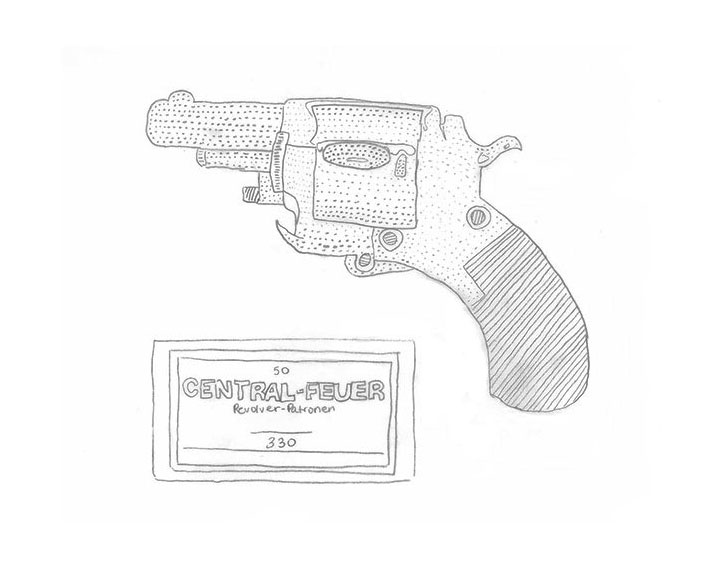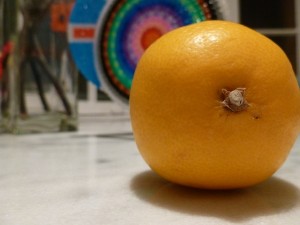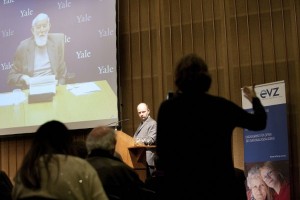 “Weapons and Dignity” is the title of the chronicle of an object in the recently published 25th anniversary brochure of the German Historical Museum. It is about a revolver that was offered as a donation to the Jewish Museum, met with great interest there, but finally found its way into the collection of the German Historical Museum. Why?
“Weapons and Dignity” is the title of the chronicle of an object in the recently published 25th anniversary brochure of the German Historical Museum. It is about a revolver that was offered as a donation to the Jewish Museum, met with great interest there, but finally found its way into the collection of the German Historical Museum. Why?
The story: a woman in Berlin during the National Socialist era, fearing for her life because she was ‘half-Jewish,’ obtained a revolver so that, should she be threatened with deportation, she could end her life instead. She survived the era of persecution and kept the revolver as a souvenir, eventually giving it to a neighbor. He in turn made contact with the Museum when he was to be required by changes in the law regulating weapons possession to register the weapon or surrender it to authorities. For an institution like the Jewish Museum Berlin, where biographical narratives play an important role in the collections and in the permanent exhibition, this revolver would have been a very welcome ‘strong’ object, given the immediacy of its provenance. → continue reading
 The Jewish Museum Berlin Academy was inaugurated last month under the auspices of 12th century scholar Moses Maimonides and his dictum: “Hear the truth, whoever speaks it.” The significance of this quote was discussed over a Majorcan lemon and almond cake, the recipe of which dates back to the middle ages and is a part of Jewish patisserie culture, to which Maimonides is known to have been more than partial. → continue reading
The Jewish Museum Berlin Academy was inaugurated last month under the auspices of 12th century scholar Moses Maimonides and his dictum: “Hear the truth, whoever speaks it.” The significance of this quote was discussed over a Majorcan lemon and almond cake, the recipe of which dates back to the middle ages and is a part of Jewish patisserie culture, to which Maimonides is known to have been more than partial. → continue reading
How our culture of remembrance is changing in view of a disappearing generation of contemporary witnesses to World War II was the subject of a conference called “Preserving Survivors´ Memories – Digital Testimony Collections about Nazi Persecution” at the Haus der Kulturen der Welt in Berlin from 20 to 22 November 2012.

Geoffrey Hartman per video connection © Birgit Meißner, EVZ
The conference was kicked off by Yale University comparative literature professor (emeritus) and Holocaust studies pioneer, Geoffrey Hartman. Born in Frankfurt in 1929, Hartman emigrated to England in 1939 as part of the refugee children’s movement. Together with his wife Renée, a survivor of the Bergen-Belsen concentration camp, he became involved in the founding of the Fortunoff Archive, which has recorded video interviews with Holocaust survivors since the 1970s. He views these video interviews as constituting a genre of their own, whose greatest significance comes from allowing survivors to speak for themselves. → continue reading
 “Weapons and Dignity” is the title of the chronicle of an object in the recently published 25th anniversary brochure of the German Historical Museum. It is about a revolver that was offered as a donation to the Jewish Museum, met with great interest there, but finally found its way into the collection of the German Historical Museum. Why?
“Weapons and Dignity” is the title of the chronicle of an object in the recently published 25th anniversary brochure of the German Historical Museum. It is about a revolver that was offered as a donation to the Jewish Museum, met with great interest there, but finally found its way into the collection of the German Historical Museum. Why?
